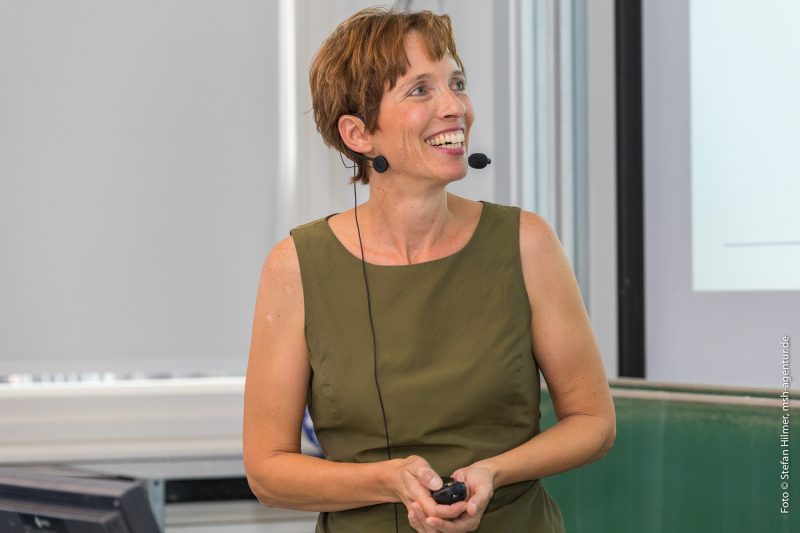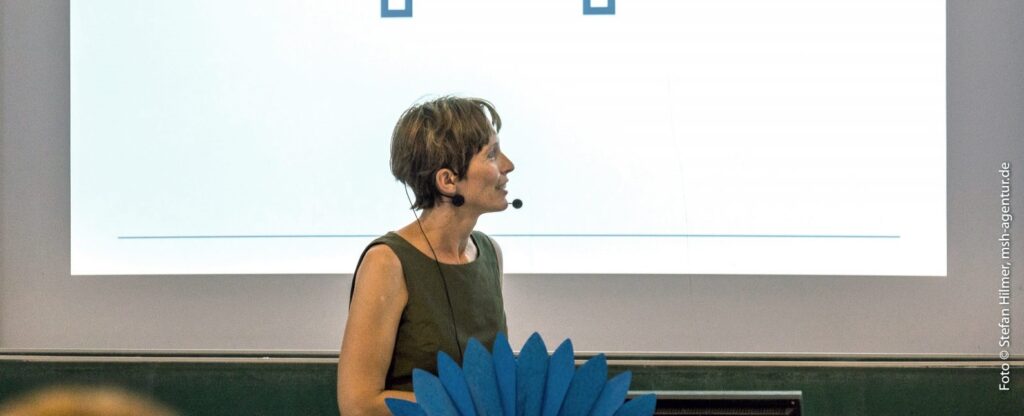
Professor Gabriele Schrag began her research journey with the Institute for Physics of Electrotechnology at the Technical University of Munich (TUM) in 2002. She received her habilitation in January 2018 and now holds the Chair of Physics of Electrotechnology, heading the research activities in the group. The DIGEST team speaks with her to find out more about her academic career.
Hi Prof. Dr. Schrag, can you give our readers an introduction about your academic background?
I studied physics at the University of Stuttgart, in the south of Germany. After my diploma (Bachelor and Masters), I went to Munich and began my doctoral degree at TUM. During this time, I began working in the faculty of Electrical and Computer Engineering while writing my thesis on the topic of modeling and simulation methodologies for microsystems (sensors and actuators).
After obtaining my PhD, I stayed on in TUM and became a permanent research staff member. Since then, I have been coordinating research activities at the Microelectromechanical Systems (MEMS) group. I was involved in teaching and other administrational fields, such as TUM’s Examination Board. I was habilitated in January 2019 and currently, I lead the MEMS research group as the Head ad interim, Chair for Physics of Electrotechnology.
How did your interest in physics first begin?
I was interested in a variety of subjects when I was in school. I was drawn to mathematics and physics, as well as music and languages. In the end, I decided to specialize in the physics due to the influence and encouragement of my physics teacher and my mother.
“A lot of things have changed during the last decade regarding gender roles in our society, but the mental load and responsibility of a caregiver often still lies on the shoulders of the women.“
What motivated you to go into research and eventually pursue a teaching career in physics?
The decision to pursue a PhD at a university was largely due to the fact that it would grant me freedom and time to work on a specific topic more in-depth than it is possible in the industry. The period when I completed my degree happened to be a time when the industry was in crisis. This led to my decision to stay on in the academia. I enjoy working at the university because it gives me the flexibility to do a large variety of things related to my research field and it is never boring.

Share with us more about your teaching experience at TUM Asia.
At TUM Asia, the module that I teach is on Electricity and Magnetism, and how the basic physical concepts of this topic are related to other disciplines of Electrotechnology. I find it an interesting experience to teach in a new environment and with a new group of students. Additionally, I like Singapore and its climate.
Women are typically under-presented in physics and engineering. Do you think there are challenges or barriers women may face in the STEM industries, and if yes, what are they?
I think the problem often lies in the ability to balance both work and family in a reasonable way. A lot of things have changed during the last decade regarding gender roles in our society, but the mental load and responsibility of a caregiver often still lies on the shoulders of the women. Also, companies with higher expectations on the availability of employeesmake it more challenging for female employees to cope with family commitments.
How do you think gender equality can be promoted in the science and engineering fields?
We find that some regulations and polices put in place by the governments in the Scandinavian countries can help to empower women to achieve their professional goals. One example is the distribution of parental leave. If parental leave could be equally distributed between men and women, it levels the playing field at the office.
In terms of the academia, a standard career of a professor requires the fulfilment of certain requirements such as international exposure in research and involvement in various committees, which entails a fair bit of traveling. This level of commitment may not be probable for both men and women with family commitments.
Taking on a deeper view when evaluating one’s qualification would help both women and men in this respect. For instance, asking questions such as “Who is this person?”, “What are his or her capabilities?”, “Is he or she qualified to do the job although the “key figures” are differing from a standard career?”
What advice would you give to young women who are seeking to pursue a career in science and engineering?
Never ever give up, you can do it! And don’t be dazzled by others who pretend to know and understand everything. It’s mostly not true.
